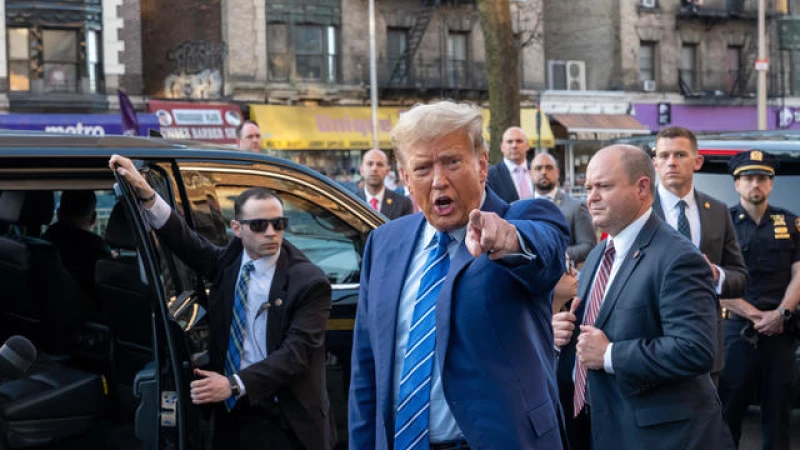If former President Donald Trump decides to take the stand in his upcoming criminal trial in New York, Manhattan District Attorney Alvin Bragg has indicated that prosecutors plan to delve into a series of recent legal setbacks to undermine his credibility, as revealed in a filing released on Wednesday.
The litany of alleged wrongdoings includes a nearly half-billion-dollar civil fraud ruling issued by another New York court, two unanimous civil federal jury decisions that found him responsible for defamation and sexual misconduct against writer E. Jean Carroll, as well as violations of a gag order and sanctions for pursuing what a judge deemed a "frivolous, bad faith lawsuit" against Hillary Clinton. This dismissed 2022 lawsuit accused Clinton and others of plotting to sabotage Trump's 2016 presidential bid by spreading rumors of collusion with the Russian government.
The disclosure pertains to a Sandoval hearing, during which a judge determines the permissible extent of cross-examination and whether a defendant's past transgressions can be brought up if they opt to testify. Should Trump opt against taking the stand, these matters are unlikely to be broached by the prosecution during the trial. The date for this hearing has not been made public yet.
Trump's legal team argues that certain topics should not be admissible in the case, leaving the final decision to the judge.
Trump pleads not guilty to 34 counts of falsifying business records, related to payments made to Stormy Daniels during the 2016 election. He denies all accusations and any affair with Daniels.
The jury selection process is currently ongoing for the trial.
The prosecution plans to mention Trump's previous false testimony and fraudulent activities in a civil fraud case.
Donald Trump has refuted all allegations in the civil fraud case and is currently appealing the decision. He has claimed that the attorneys and prosecutors involved in these cases are targeting him for political reasons.
"Well, it could also make me more popular because the people know it's a scam," he commented.
Nevertheless, Trump's decision not to testify cannot be used against him. According to the Fifth Amendment, the jury is not allowed to draw any negative conclusions if Trump chooses not to take the stand.







